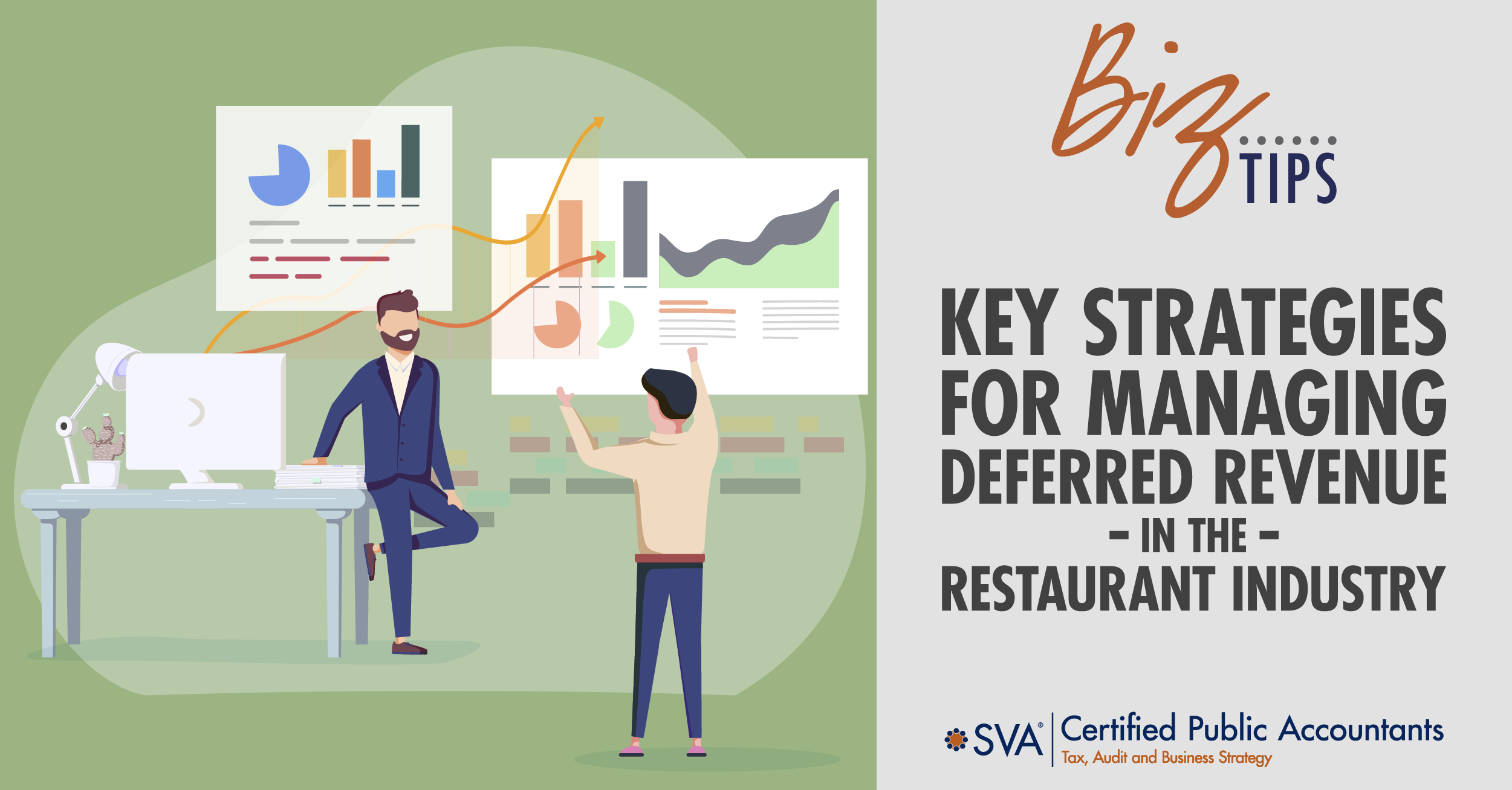Cash flow in the restaurant business might seem straightforward at first glance.
Customers order food. The restaurant prepares and provides that food. The customers pay for it.
The order in which these three steps occur may depend on the type of restaurant. At a fast-food establishment, for example, the customer typically pays for their food before receiving it. Customers at a restaurant that offers fine dining, on the other hand, may receive the check once they have finished their meals.
This only describes one way that restaurants can receive income, though. They may also receive money from a customer before they provide any food, drinks, or other services.
A restaurant must enter this money in its books as deferred revenue. Read on to learn about how restaurants can account for this type of income.
What is Deferred Revenue?
Deferred revenue is money that a company receives for goods it has not provided or services it has not performed. In accounting terms, deferred revenue is not “income.” It appears as a liability on the company’s balance sheet until the company has earned it.
What Types of Restaurant Income Count as Deferred Revenue?
Restaurants can receive deferred revenue in several situations. Some present more complicated accounting challenges than others.
Catering Contracts
Some restaurants offer catering services for events in addition to in-house dining and takeout. They typically require customers to arrange catering in advance of the event so they have time to prepare the food, equipment, and other materials. They may ask the customer to pay a deposit, which could be as much as 50% of the total fee. The customer pays the remaining balance at the end of the event.
Accounting for deferred revenue from catering is usually straightforward. The upfront payment is entered as a deferred revenue liability until the restaurant has delivered the contracted services. This could be anywhere from a few days to a few months. When the event is over, and the customer has paid the balance, the restaurant can realize the entire amount as income.
Gift Cards
When a restaurant sells a gift card to a customer, the entire amount of the gift card is deferred revenue. As the recipient of the gift card uses it, the restaurant can realize part or all of the balance as income.
Accounting for income from a gift card is simple as long as the recipient spends the gift card quickly. Unredeemed gift cards can present significant accounting challenges.
Companies may try to set expiration dates for gift cards, after which they are no longer valid. This does not necessarily mean, however, that the business can recognize the unredeemed value of the gift card as income at that time.
The Credit Card Accountability Responsibility and Disclosure (CARD) Act of 2009 states that gift cards may not expire sooner than five years after their activation date. State laws may set further restrictions on expiration dates.
California has some of the strictest laws. Any gift card sold in California after January 1, 1997 does not have an expiration date, and companies must redeem valid gift cards for cash upon request. Massachusetts, Rhode Island and several other states also set strict limits on expiration dates.
Some states treat unredeemed gift cards as unclaimed or abandoned property after a specified length of time, meaning that at least some of the remaining value could escheat to the state. In Georgia, for example, state law treats a gift card “issued in the ordinary course of an issuer’s business” as abandoned if it remains unused for more than five years.
The laws in each state can be complicated and may set different rules based on factors such as whether a gift card has a stated expiration date.
Loyalty Programs
Loyalty programs, such as when a customer earns “points” for purchases that they can redeem at a later date, could count as deferred revenue for restaurants that use generally accepted accounting principles (GAAP).
Suppose, for example, that the points are based on a percentage of a customer’s purchases, such as $1 for every $50 spent, or 2%. The restaurant would book that percentage as deferred revenue and the rest as current income.
Restaurants that use other accounting methods would not have to do these extra calculations. They could book the entire amount paid by the customer as income.
How Can Restaurants Best Manage Deferred Revenue?
The following best practices can help restaurants accurately account for deferred revenue:
Know the Laws and GAAP in Your Restaurant's Jurisdiction
Knowing your legal and accounting obligations is essential. State law may determine how you must account for unused gift cards. Accounting rules may give you a limited time to recognize deferred revenue. You will not be able to defer expenses under almost any circumstances.
Provide Ample Information to the Accountants
The more information you can record about deferred revenue transactions, the better. This includes amounts collected in advance and services provided, along with dates for everything. Anyone with access to the restaurant’s books should be trained in these procedures.
Maintain Communication with the Accountants
The restaurant’s accountants need to know of any changes in the status of deferred revenue liabilities. Inform them as soon as possible when they are able to recognize income.
If you have any questions or would like additional information, please contact one of our accounting professionals.

© 2023 CPA ContentPlus

